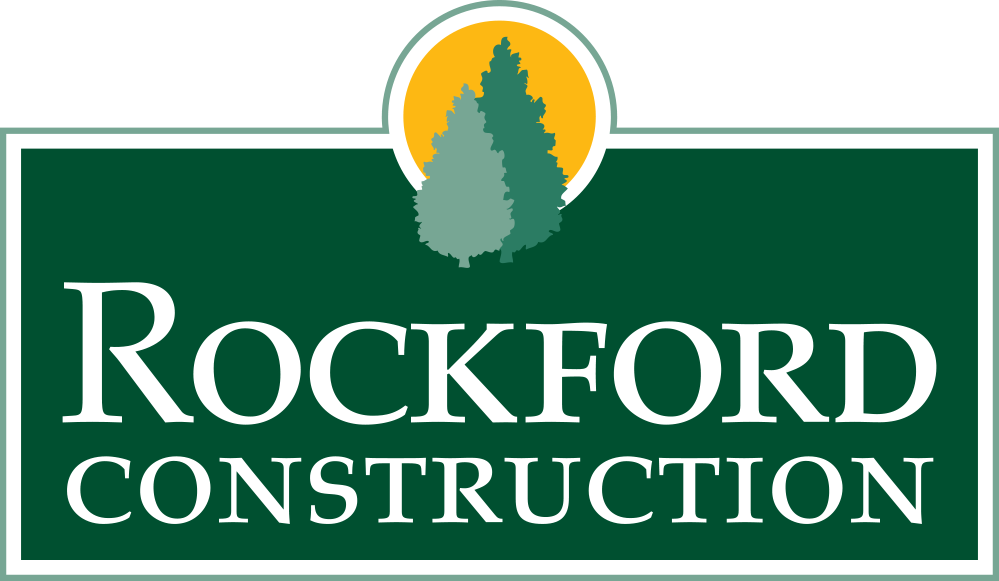
Condo vs. Townhouse: What is the Difference?
Are you looking for your next home, but don’t know whether to buy a condo or a townhouse? If so, you’re not alone! Many people struggle to understand the differences between these two types of housing communities and the responsibilities that go along with being a condo owner vs. a townhouse owner.
Condo and townhouse life can seem very similar. But let’s take a look at the differences between condos and townhouses so that you can make an informed decision when it comes time to select your next residence.
What Is a Condo?
A condo is short for condominium. A condominium is a type of housing that individuals own separately, but share common areas like parking lots, elevators, hallways, and in some cases swimming pools or other amenities with other condo owners.
Condominiums are typically found in large multi-family buildings or complexes, although detached condo units and single-family homes are becoming increasingly popular.
Condo owners own their individual units but have shared responsibility for paying monthly HOA fees to maintain the condo buildings’ common areas, pay for trash removal, grounds upkeep and landscaping. Additionally, the condo homeowners association may put in place rules and regulations for the good of the condo community that govern how residents use their units as well as how they behave in the common spaces.
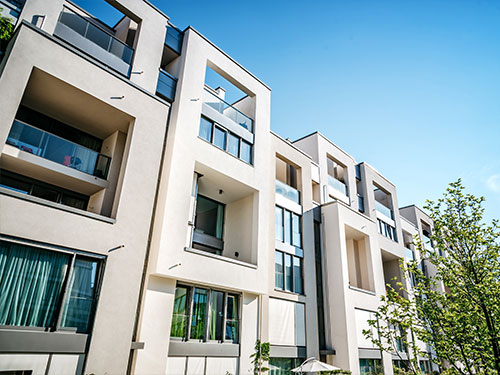
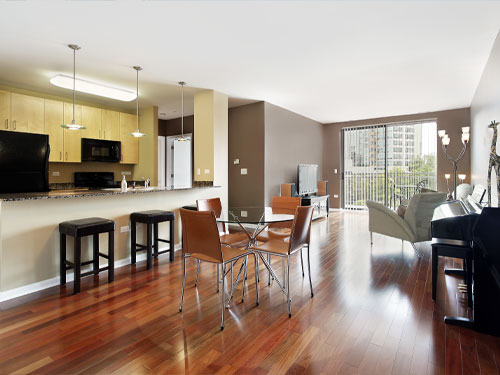
Condo Living
Condo living has grown in popularity in recent years due in part to its affordability and convenience of having access to shared amenities like swimming pools, fitness centers, tennis courts, and shared spaces for community events.
Condo developments are on the rise in urban areas as young people are joined by empty nesters who no longer have the interest or need for large single family homes.
By paying monthly fees, condominium owners are able to enjoy having access to various amenities and services without having to take on the sometimes daunting and unpredictable maintenance costs associated with traditional single-family home ownership.
A Popular Choice but There Could be Downsides
It is important for those considering condo living to research their potential purchase thoroughly, as there are some potential drawbacks such as high association fees or strict rules and regulations. Additionally, condos can depreciate in value over time, which is something to consider when making a long-term investment.
Despite these potential downsides, condo living is a popular option for those looking to purchase a home in a desirable area without the added responsibility of property maintenance.
In conclusion, condos are an increasingly popular form of housing that offer convenience and affordability for individuals who don’t want to take on the responsibility of property ownership of a detached single family home.
It is important to consider all aspects of condo living, including potential drawbacks and higher condo HOA fees, when making a long-term investment decision. With careful research and consideration, condo living can be an excellent option for those looking to purchase a home without the added stress of lawn care and extensive property maintenance.

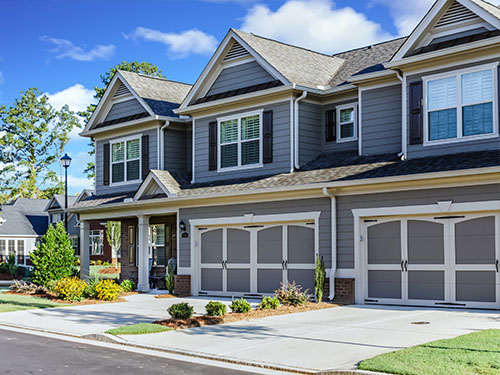
What Is a Townhouse?
Townhouses are similar to condos in that they can also be found in multi-family complexes or residential neighborhoods.
However, instead of being owned by individual unit owners like a condo, townhouses are usually owned by a group of investors.
While townhouses also have shared common areas such as parking lots and lawns, they often come with additional features such as private outdoor space or balconies which provide more privacy than most condos do.
Additionally, while some townhomes may have homeowners’ associations (HOAs) with rules governing use of the property, they generally don’t require any additional fees beyond those associated with renting out the property itself.
Townhouse Ownership
Another key difference between condos and townhouses is the ownership structure. Condos tend to be individually owned, while townhouses typically are owned by a group of investors who rent or lease them out to tenants. This means that when you purchase a condo, you will own it outright and can make any changes or upgrades as you wish (within the rules of your HOA).
However, when renting a townhouse, there may be restrictions on what changes or modifications you can make due to landlord or townhouse owners’ regulations. Additionally, with a condo purchase comes greater financial stability since mortgage payments remain more or less constant over time, whereas rental rates within your townhouse community may increase each year depending on market conditions.
Ultimately this makes investing in a condo more attractive for those looking for long-term security than renting a townhouse.

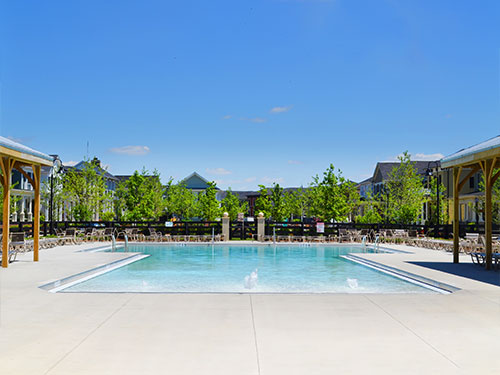
The Homeowners Association
The homeowners association (HOA) for both condos and townhouses are a common feature. They are governed by a board of directors elected by the homeowners. HOA bylaws and covenants regulate the use of the common areas and protect the value of the property. The HOA can also create and enforce rules for the buildings or the community.
Unlike with the condo association, the townhouse association does not manage the individual units within the complex. Instead each owner is responsible for managing their own unit including making repairs, paying for maintenance, and handling tenant issues including noisy neighbors!
Conclusion
When it comes down to it, deciding between a condo and townhouse depends largely on what type of lifestyle suits you best—and what kind of budget you’re working with! If you’re looking for more privacy and space than an apartment offers but don’t want to own too much land or worry about maintaining it yourself—a condo might be your best bet.
On the other hand, if you’re looking for something more affordable than single family home ownership but still want access to extra features like private yards—then perhaps you should look at townhouse communities. They could be just what you need!
Ultimately it’s important to carefully consider all your options before making any big decisions when house hunting. Consider factors such as resale value, square footage, owning vs. leasing, location, budget, and even the HOA’s position on pets. Take some time to do your research before jumping into anything,
So, condo vs. townhouse. The debate continues. In the end, both condos and townhouses can make great homes – it just depends on your lifestyle and budget. Whether you choose to purchase or build a condo, or townhouse, the team at Rockford Construction can help you find the perfect home that fits your needs. Contact Rockford Construction to learn more.

